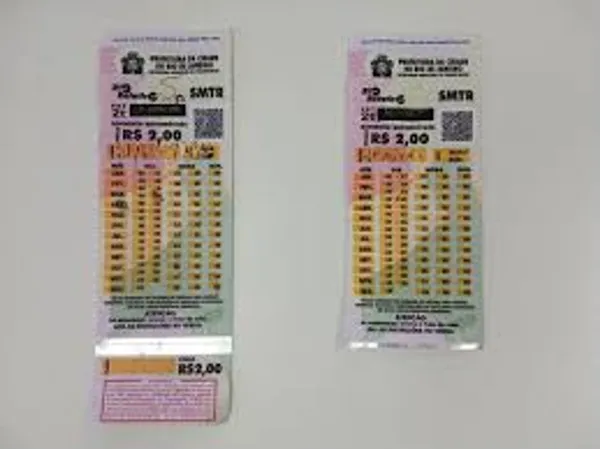General tips
Tips and tricks for your trip to Rio
Getting a SIM card
Unfortunately, getting a local SIM card in Rio is not easy for foreigners. Brazilian mobile providers require you to present the local ID number (we call it CPF) when buying pre-paid SIM cards.
So, unless you know someone in Brazil, your next best option is to get an international eSIM instead. The eSIM we use the most is Airalo, and we can definitely recommend it.
Read our full guide about getting a SIM card for Brazil.
Parking rules
Public parking is available in a lot of places around Rio de Janeiro, but it is normally paid. Payment is not digital in most cases. The people who watch over that specific parking lot (we call them "flanelinhas") will be identifiable with a neon jacket and will give you a receipt to put on the windshield of your car when you park it. The receipt looks like this:

Each parking period is 2 hours long and it usually costs 2 BRL (but prices may vary depending on the zone). You can pay upfront for multiple periods if you know you are staying longer than 2 hours, but this is the minimum. The tickets have different colors depending on the zone. If you are still within your paid period, you can reuse your ticket in another parking spot within the same zone.
Be careful: there are a lot of fake flanelinhas in Rio. You will know they are the official ones when they have this receipt. Avoid leaving your car in spots that are not controlled by the official flanelinhas.
There are also a lot of garages and paid parking places around the city as well!
Payment
In Brazil, the official currency is the Brazilian real. The vast majority of places accept cards (debit and credit). Even street vendors on the beach accept cards nowadays!
I do recommend having some cash with you for a few specific situations. You might need cash to pay for public parking as I described above, and for buying from street vendors or events - for example, if you go to a soccer game in Maracanã.
Opening dates and times
In Rio, most stores and supermarkets are open from 8-22h, every day of the week.
Local stores may close on Sundays, but generally speaking, you can find most things open during those times. Bars and restaurants work later than 22h and there are also a few stores that work 24/7.
Every neighborhood always has one designated pharmacy that stays open 24/7. So, if you have any emergency or need medication, just ask the staff at your hotel and they will be able to tell you which pharmacy to go to.
Water
Tap water in Rio de Janeiro is not drinkable, so make sure you always buy mineral water. In private apartments, we normally have a water filter.
Also, water is not free in restaurants and bars. Even though we do have a rule that you can ask for a glass of tap water for free, I find that this is not yet a standard practice and most establishments will just sell you the mineral water bottle.
Tipping culture
In Brazil, tipping is very common when going to a restaurant or getting a service (for example a manicure). However, we don't typically tip taxi drivers, deliveries, etc.
You will see that the tip is normally included in most restaurants' bills. The standard tipping rate is 10% but there are a few high-end establishments that will charge 12 or 15%. However, tipping is completely optional!
Even though it comes written on the bill, it will always be added at the end. If you did not have a good service, you have the right to say you do not want to tip and they will comply. This is completely normal and something we all go through, so don't feel bad about it!
As a customer, your voice matters a lot!
Want to see more?
I have created curated maps, itineraries and more for travellers that want to travel like me.
Looking for things to do?
Go check out my guide for the best free things to do as well as itineraries and travel tips to make your trip unforgettable.

